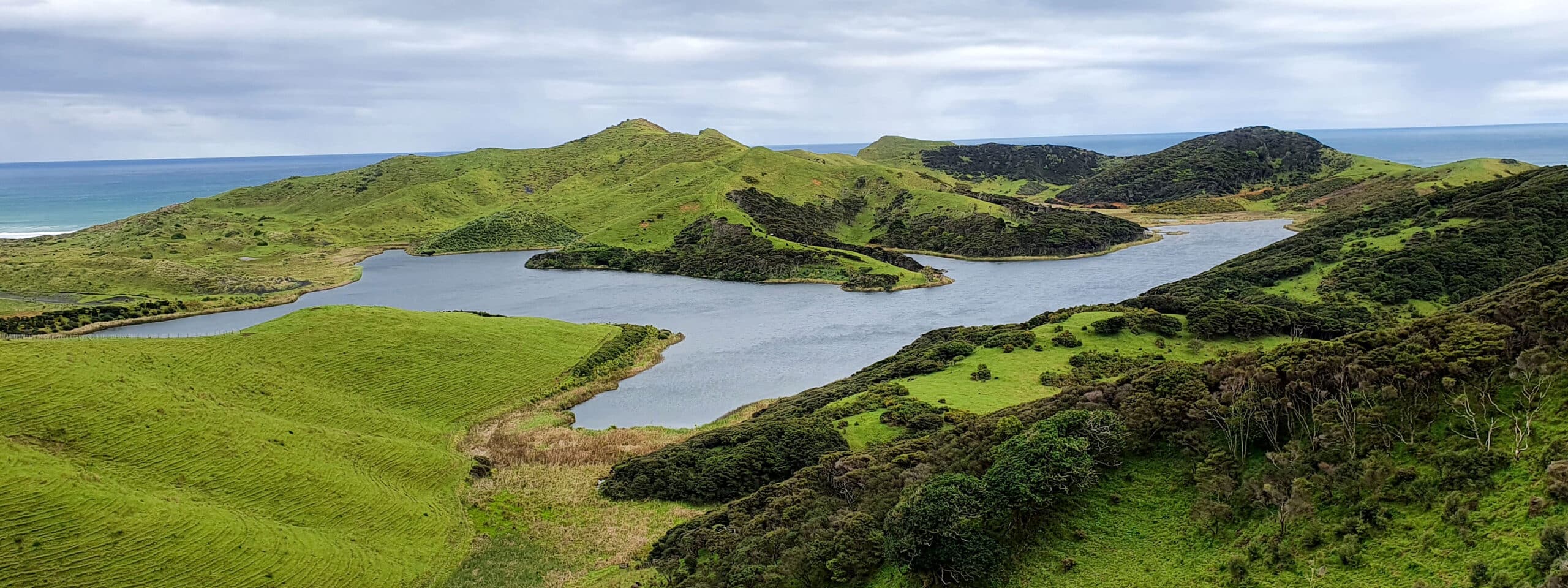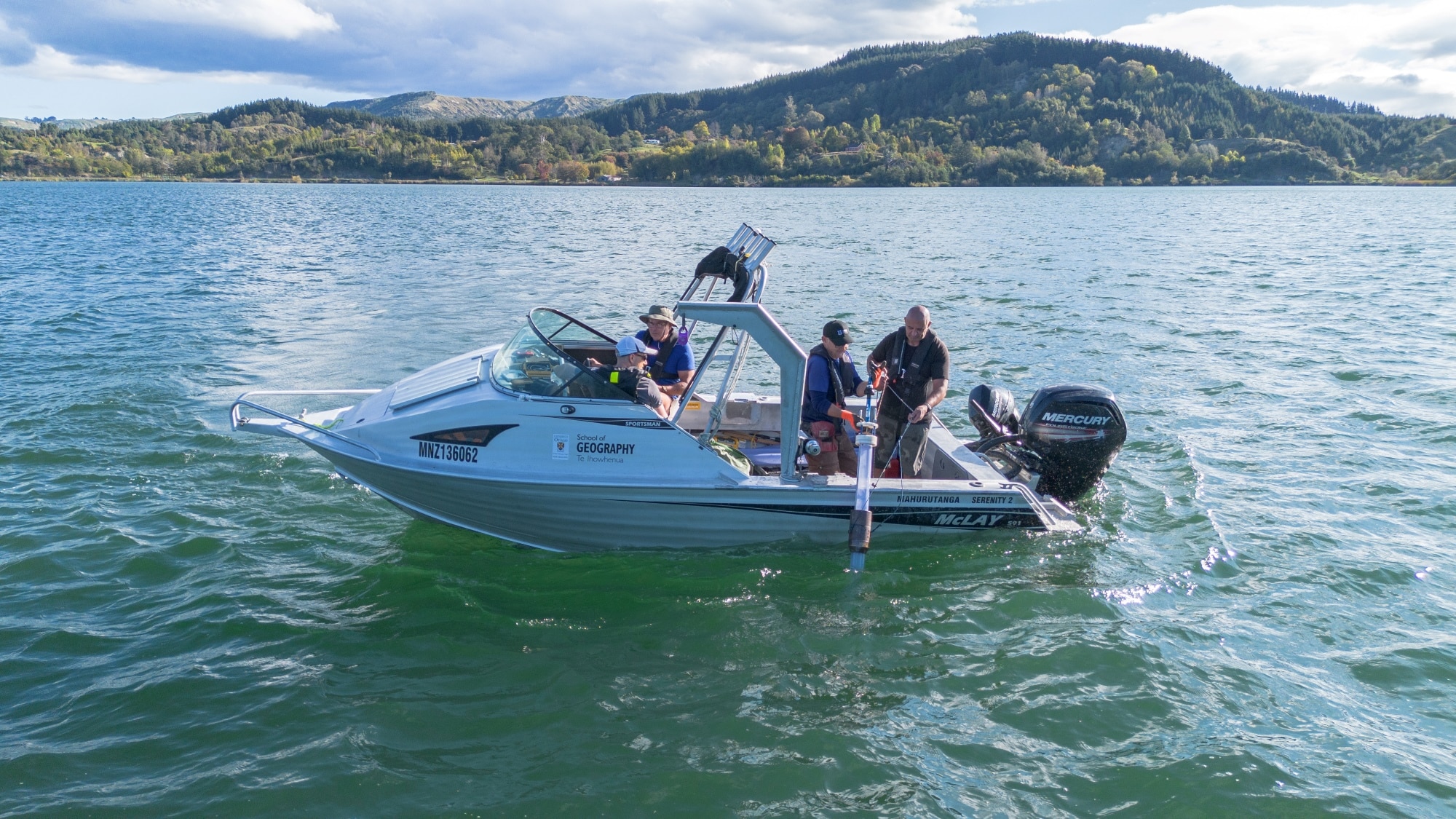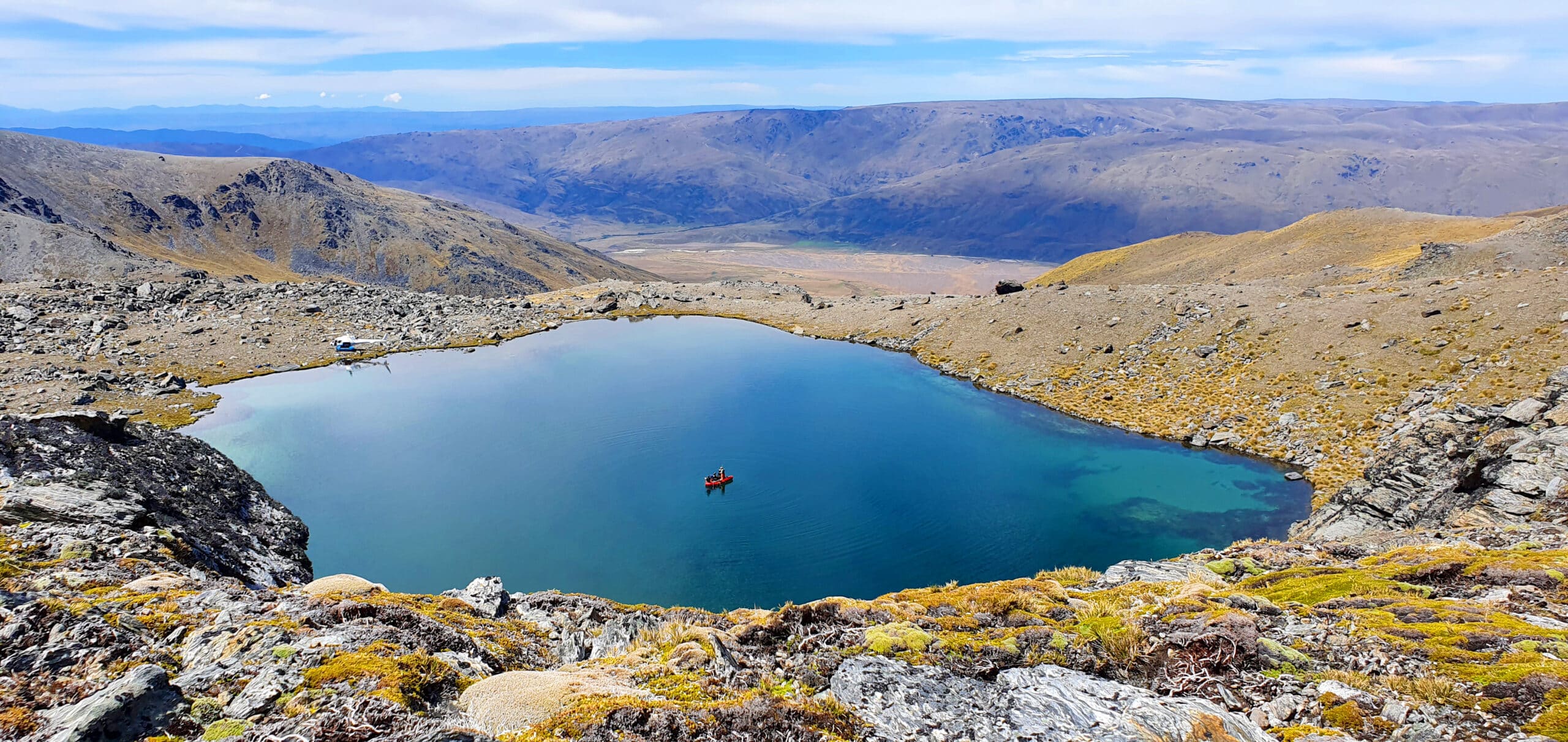Media Release
A new website brings together Māori and Pākehā histories, scientific insights and personal memories of Wairarapa lakes as part of a project that aims to kick-start fresh conversations about lake health and mauri (a Te Ao Māori concept meaning life-force).
The website (Wairarapa Moana Pūrākau Kete – lakestoriesnz.org) uses a range of mediums including short documentaries, audio recordings, photography and art to share stories that bring these lake histories to life.
They feature local experts and community members whose lives have been shaped by these lake taonga, sharing what the lakes mean to them and their vision for improving the health of both the lakes and their communities.
The project is a part of Cawthron Institute and GNS Science’s joint Lakes380 research programme which aims to weave together different forms of knowledge, ranging from traditional scientific knowledge collected through lake sediment sampling, alongside social histories that provide important context.
Lakestoriesnz.org project leader Charlotte Šunde of Cawthron Institute said that some of these stories include how Ngāti Kahungunu gifted Lake Wairarapa to the Crown in 1896, the ‘battle’ to control Lake Onoke’s opening and the return of the lake bed to Māori through treaty settlements.
“Digital storytelling like this is a fairly new and very effective way of bringing lake stories to a wide audience, reaching far beyond the impact of scientific publications,” Charlotte Šunde said.
“By combining scientific insights from lake sampling with the stories that are told through these audio-visual pieces, we set out to open a space for dialogue about the history of Wairarapa Moana and what we might do to improve the health of these lakes and their communities.
“The stories also celebrate the positive changes that are happening throughout the community to improve the condition of Wairarapa waterways.”
The Lakes380 project has focused on building in-depth relationships with iwi in the Wairarapa and Rangitīkei, with different styles of engagement being adopted in each rohe that reflect the relationships formed and the unique priorities for each iwi. In Wairarapa, storytelling immediately emerged as an important opportunity given where iwi are at with environmental projects and treaty settlements for Wairarapa Moana, hence the decision to create a website that could be home to these histories.
Environment manager Rawiri Smith of Ngāti Kahungunu ki Wairarapa said that the stories touched the right tone with the community and that iwi would like to build on the project’s outcomes by creating a living record for all waterways in Wairarapa.
“These lake stories have provoked thinking, encouraging behaviour change out of our common humanity rather than through confrontation or enforcement,” Rawiri Smith said.
For more information about Wairarapa Moana Pūrākau Kete, visit lakestoriesnz.org.
For more information about Lakes380, visit lakes380.com.



